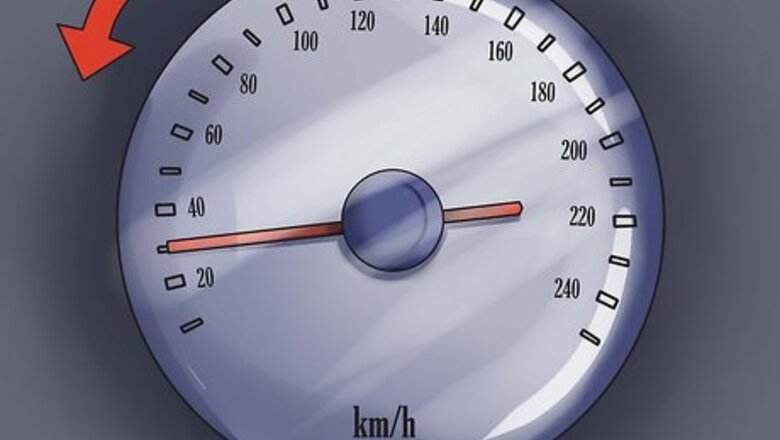
views
X
Research source
Learn how to navigate a roundabout by starting with Step 1 below.
Navigating a Single-Lane Roundabout
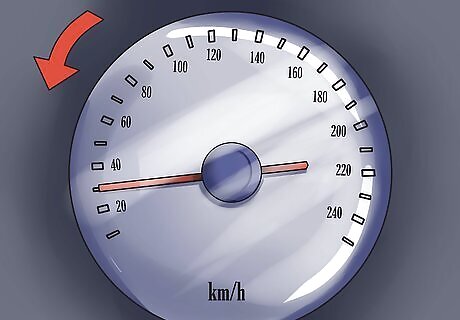
Slow down as you approach the roundabout. At this point, you should see a "Roundabout Ahead" sign followed by a "Yield" sign. The recommended speed is normally 15 - 20 mph (24 - 32 kph).
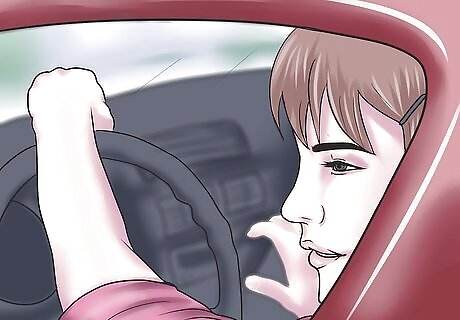
Look to your left before entering the roundabout and yield to any oncoming traffic. Traffic already in the roundabout has the right-of-way. Do not enter unless a safe gap is present. If there is no traffic in the roundabout, you may enter the roundabout without yielding. Crosswalks are placed one or two car-lengths before the roundabout itself. Yield to any pedestrians who are in, or about to enter, the crosswalk. If a car is in the roundabout, you could look at the direction of its tires or if it has a signal, this will give you an indication whether they're turning or they're going to go straight through the roundabout.
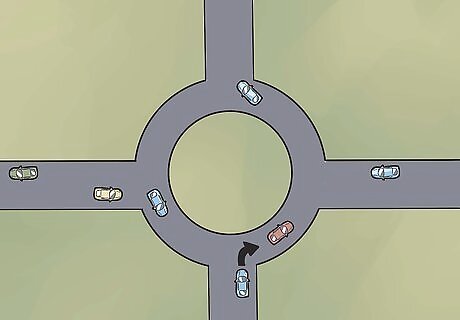
Enter the roundabout when there is a safe gap in traffic. Maintain a low speed as you maneuver through the roundabout and proceed to your exit.
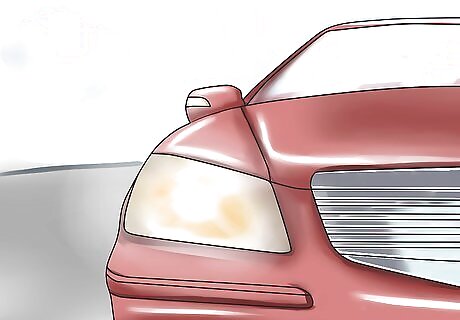
Engage your turn signal as you approach your desired exit. This will inform other drivers that you wish to exit the roundabout, easing confusion.
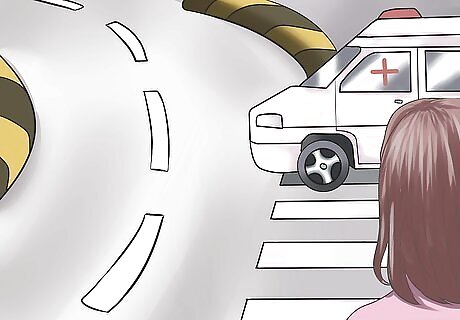
Yield only to pedestrians in the crosswalk or emergency vehicles when exiting a roundabout. Remember that drivers inside the roundabout have the right-of-way. Unless a pedestrian is crossing the crosswalk or an emergency vehicle, such as an ambulance, is entering or exiting the roundabout, proceed through the exit without stopping or slowing down. If an emergency vehicle is about to enter or has already entered the roundabout, do not stop in the roundabout. Instead, exit out your original destination and only then pull over.
Navigating a Multi-Lane Roundabout
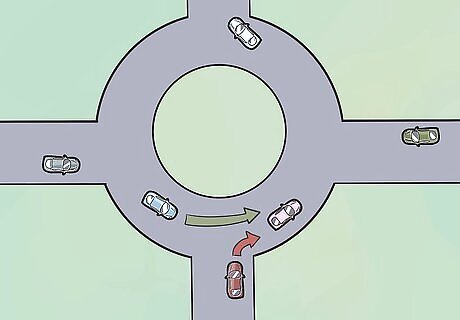
Remember to yield to both lanes of traffic in a multi-lane roundabout. If you know you'll be turning right, and hence staying in the rightmost lane, but you see an oncoming car in the left lane, wait for it to pass before entering the roundabout. Although frowned on, the car could merge into your lane just as you are entering the roundabout, causing an accident.
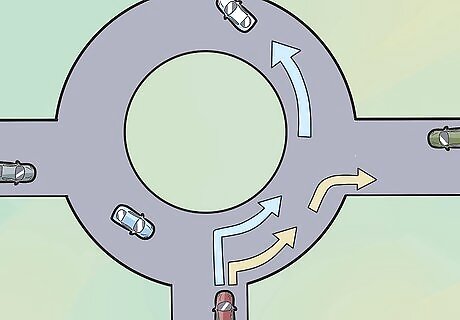
Choose which lane to enter based on which direction you want to exit. In multi-lane roundabouts, which usually have three or more possible exits, the lane you choose to drive in is dictated by the kind of turn you want to make: Occupy the left lane if you decide to turn left, make a U-turn, or go straight. Occupy the right lane if you decide to turn right or go straight. Look for signs indicating the allowed movements for each lane. These signs are usually located above or alongside the road and/or arrows painted on the road itself.
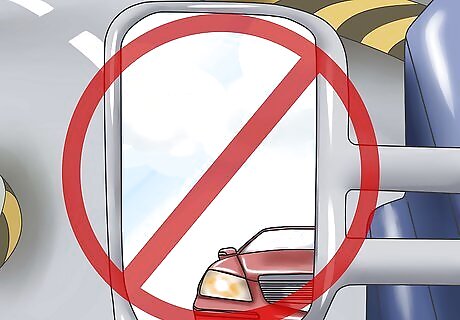
Never drive next to, or attempt to pass, a large vehicle or truck on a multi-lane roundabout. Large trucks have a larger turning radius, making them one of the more dangerous obstacles in a roundabout. Always give them ample room to turn by staying behind them a bit more than you ordinarily would with passenger vehicles.
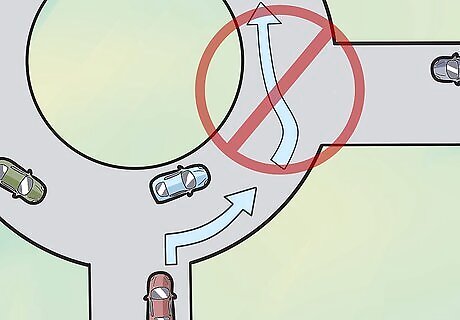
Stay in your lane at all times. Never change lanes while in a multi-lane roundabout.
Considering Other Factors When Navigating a Roundabout
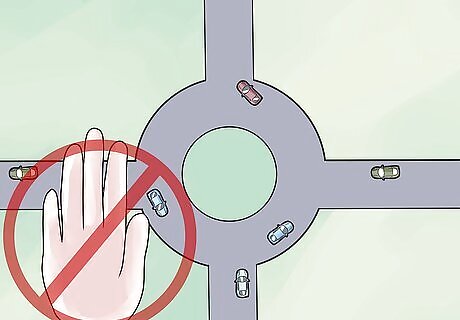
Do not ever stop in the middle of a roundabout. A roundabout is like an intersection, through which traffic is continuously flowing. Stopping in the middle of a roundabout will cause congestion and increase the likelihood of an accident.
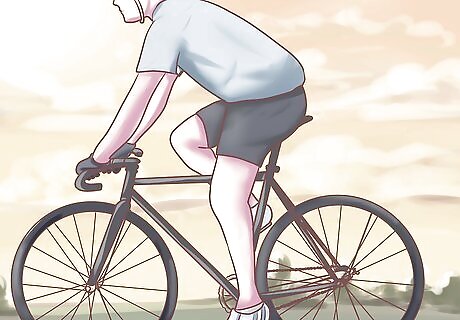
Navigate the roundabout safely as a cyclist. If you are cycling through a roundabout, you have two options: Enter the roundabout as if you were a vehicle. Remain centered in your lane to be most visible and avoid being cut off by other vehicles. Stay in the dedicated bicycle lane and proceed to your exit. The roundabout may have an undercrossing or overcrossing for pedestrians and cyclists to avoid conflict with vehicles. If you are uncomfortable riding your bicycle through the roundabout, exit the roadway and use the crosswalks.
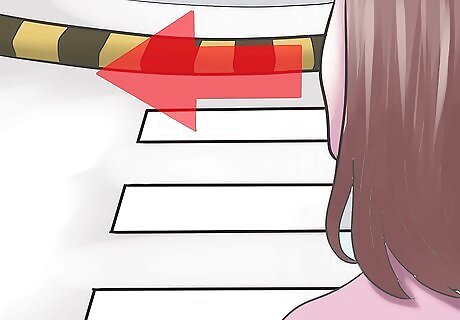
Navigate the roundabout as a pedestrian. If you wish to cross the roundabout as a pedestrian, follow these steps: Look to your left and cross when there is a safe gap in traffic. Stop when you reach the splitter island. Look to your right and cross when there is a safe gap in traffic.














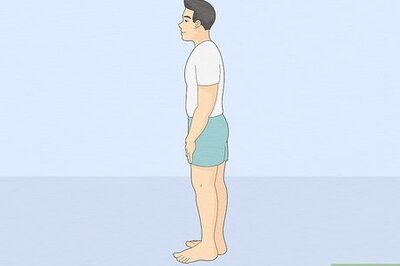

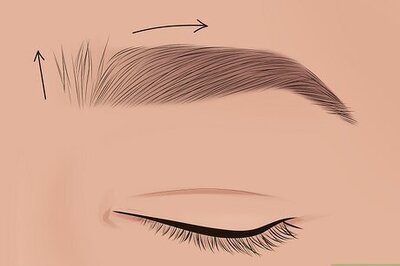

Comments
0 comment